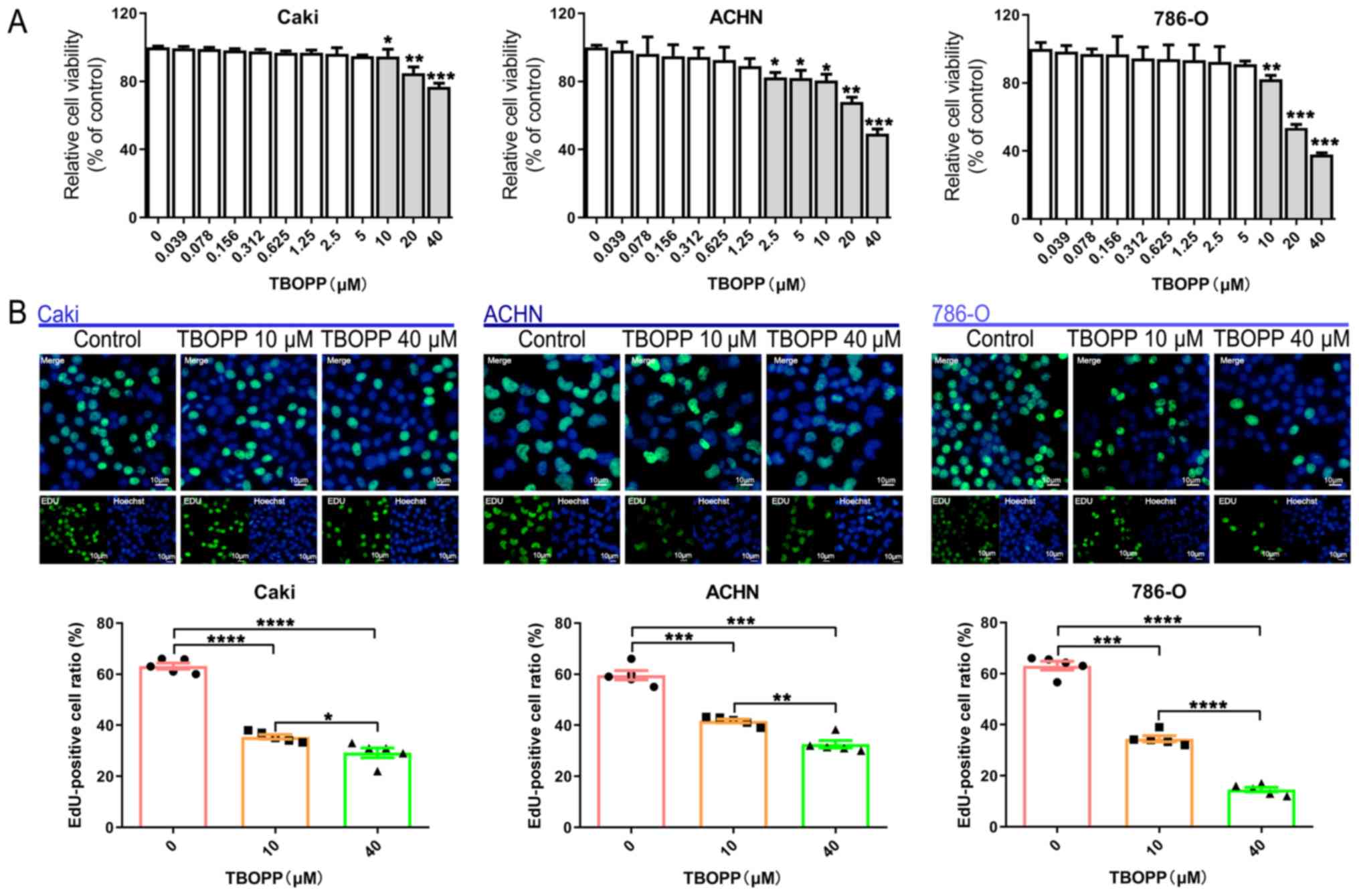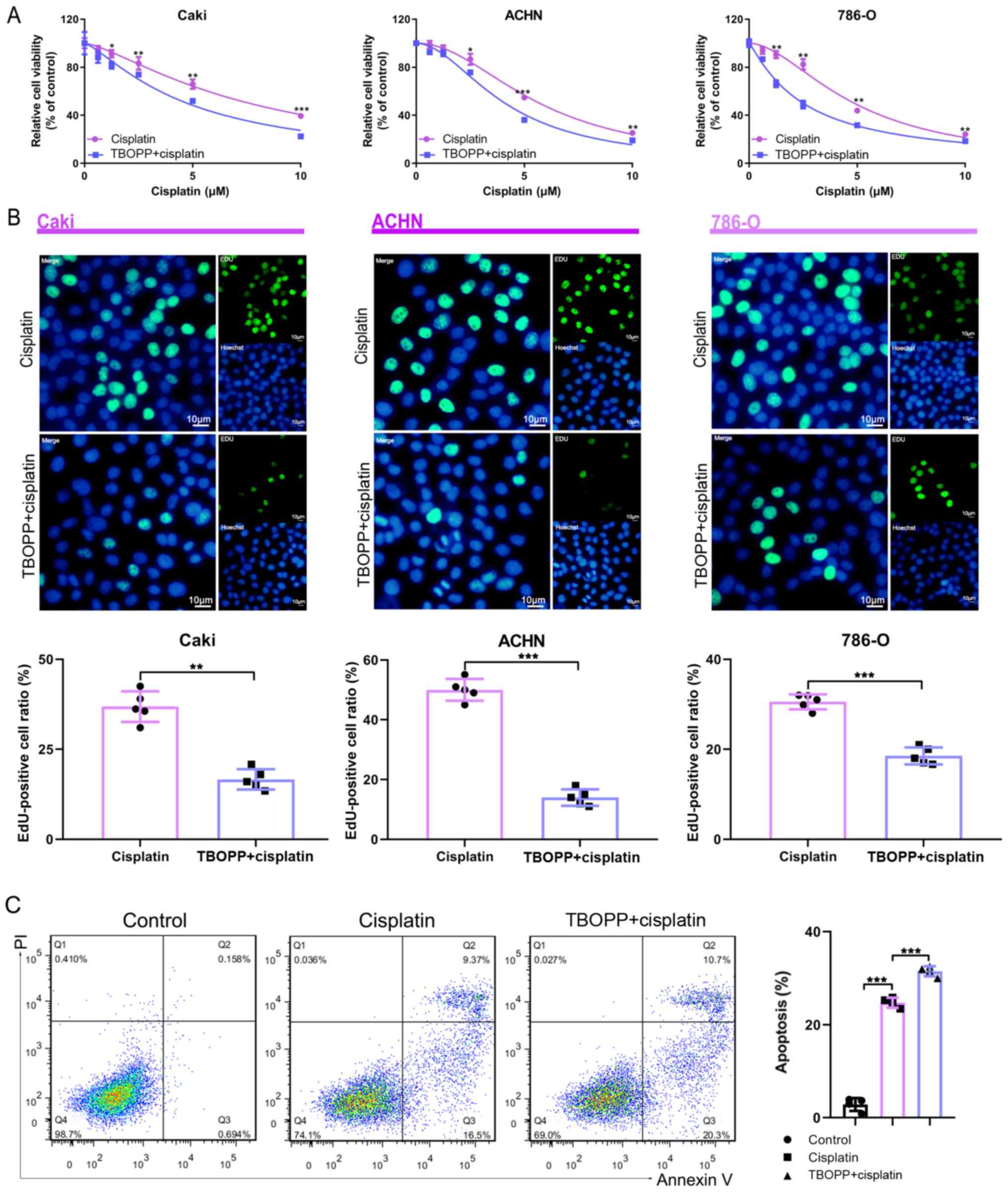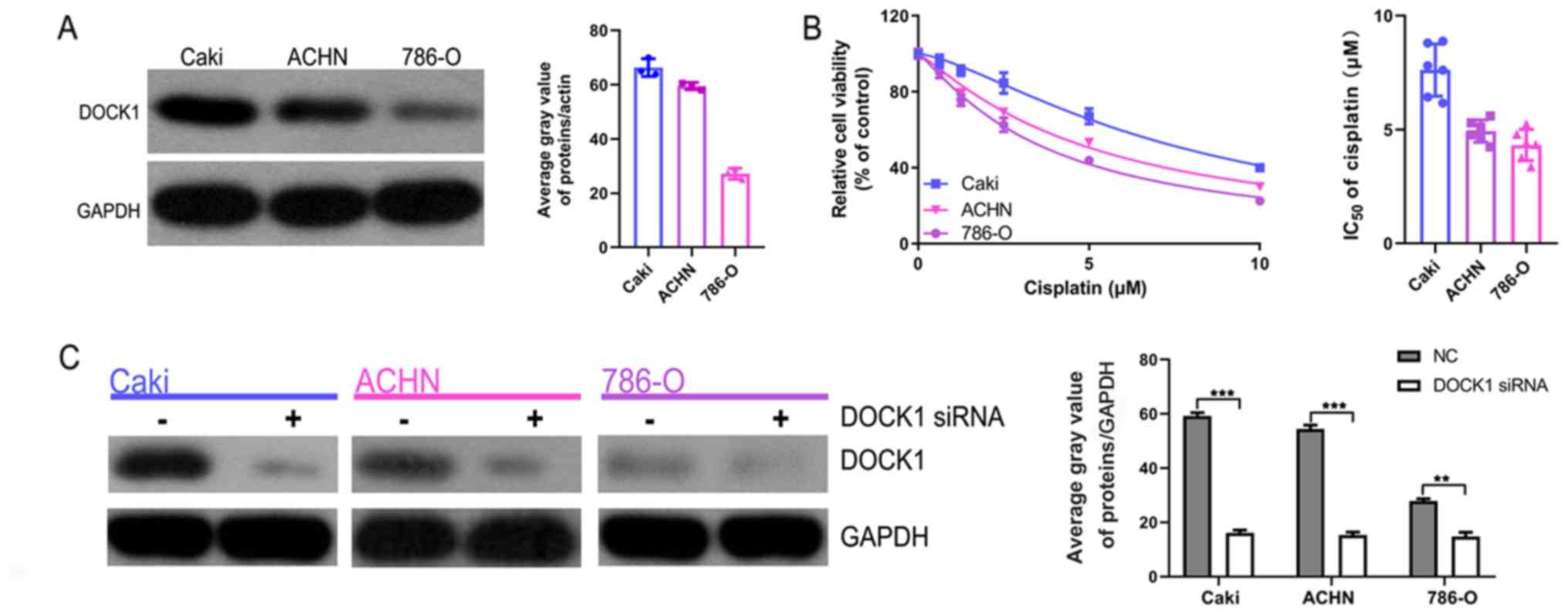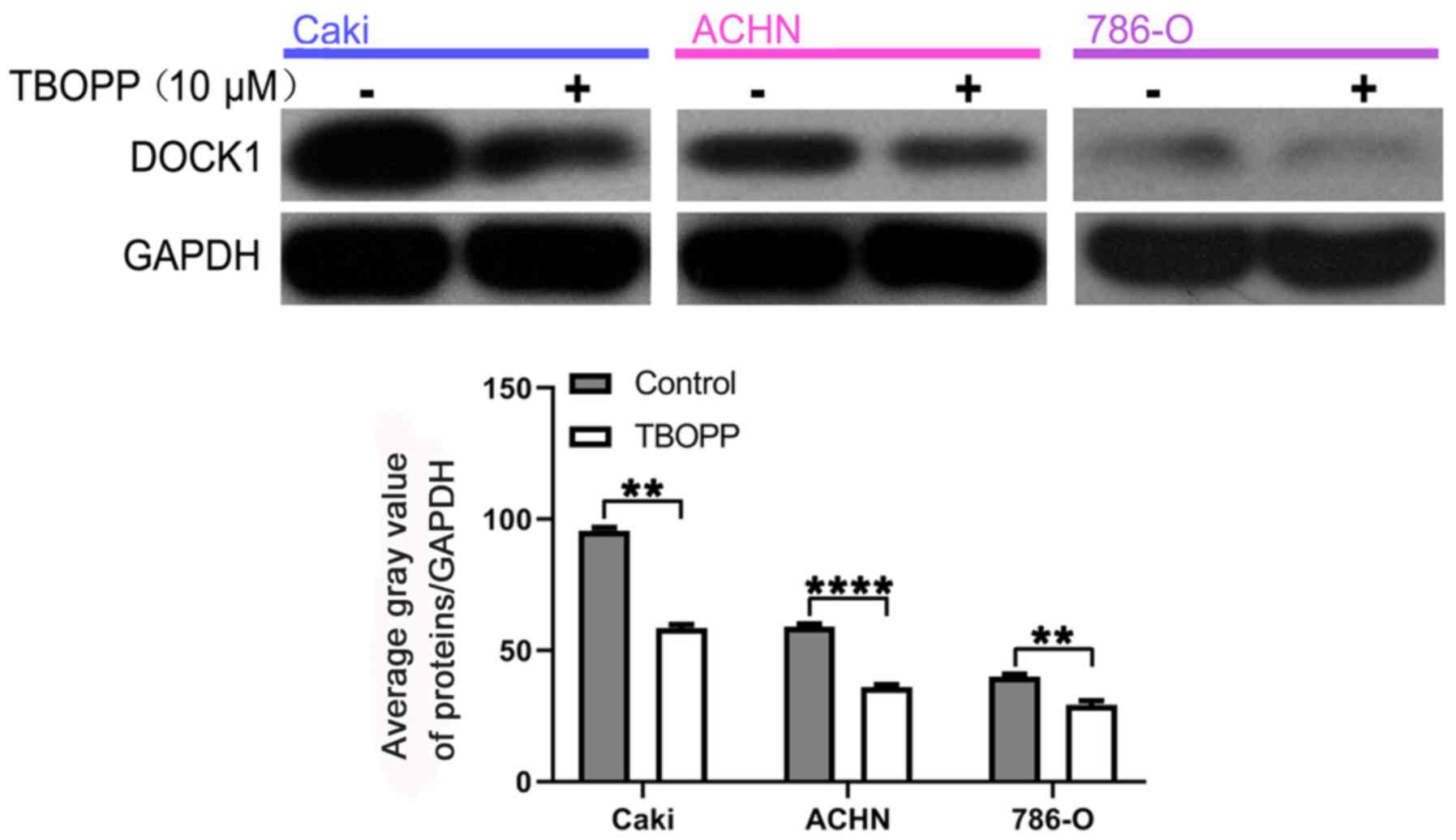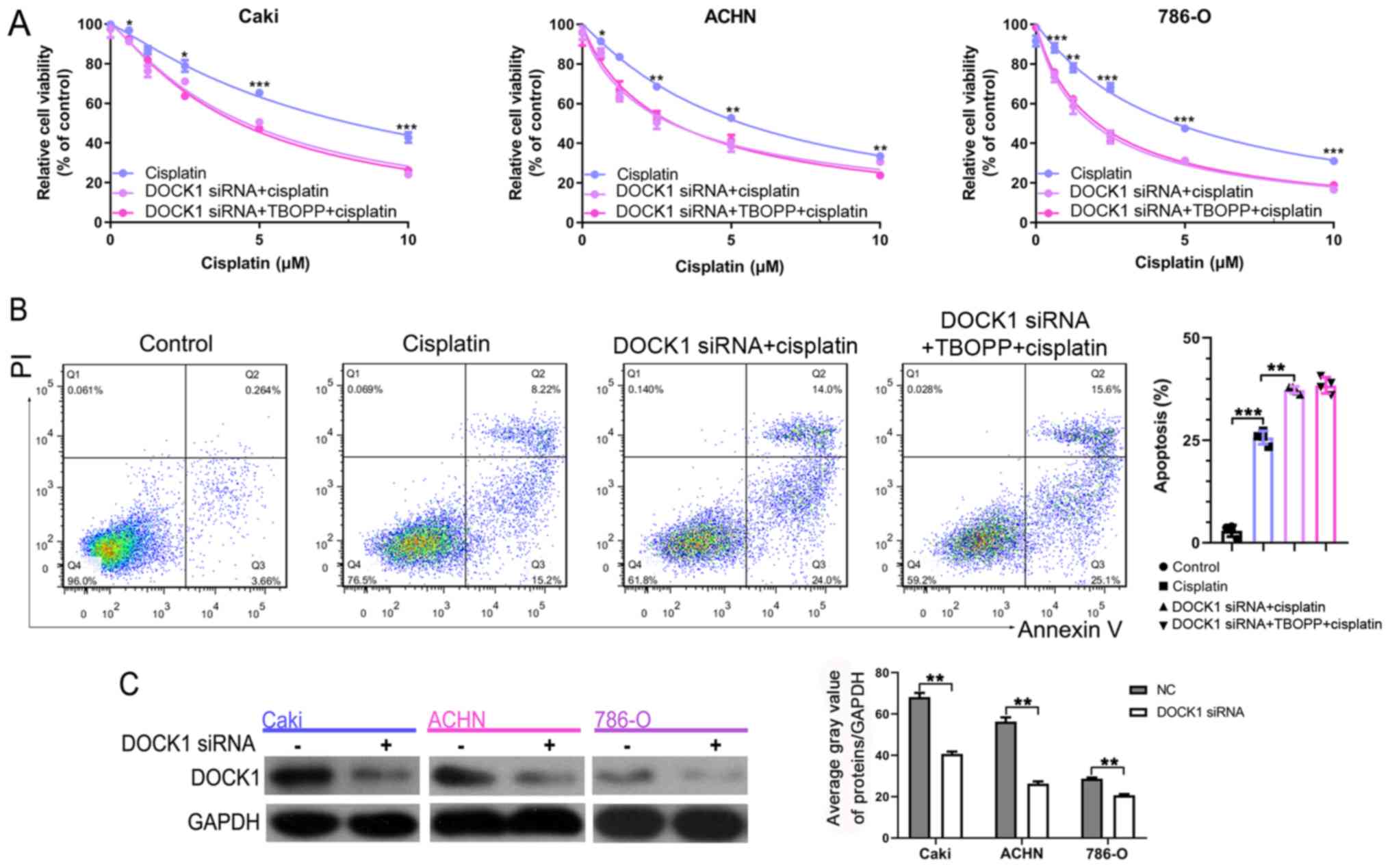|
1
|
Jonasch E, Gao J and Rathmell WK: Renal
cell carcinoma. BMJ. 349:g47972014. View Article : Google Scholar : PubMed/NCBI
|
|
2
|
Rossi SH, Klatte T, Usher-Smith J and
Stewart GD: Epidemiology and screening for renal cancer. World J
Urol. 36:1341–1353. 2018. View Article : Google Scholar : PubMed/NCBI
|
|
3
|
Van Poppel H, Becker F, Cadeddu JA, Gill
IS, Janetschek G, Jewett MA, Laguna MP, Marberger M, Montorsi F,
Polascik TJ, et al: Treatment of localised renal cell carcinoma.
Eur Urol. 60:662–672. 2011. View Article : Google Scholar : PubMed/NCBI
|
|
4
|
Vitale MG, Bracarda S, Cosmai L, Crocetti
E, Di Lorenzo G, Lapini A, Mandressi A, Martorana G, Masini C,
Montironi R, et al: Management of kidney cancer patients: 2018
guidelines of the Italian Medical Oncology Association (AIOM).
Tumori. 105 (4_suppl):S3–S12. 2019. View Article : Google Scholar
|
|
5
|
Sánchez-Gastaldo A, Kempf E, González Del
Alba A and Duran I: Systemic treatment of renal cell cancer: A
comprehensive review. Cancer Treat Rev. 60:77–89. 2017. View Article : Google Scholar : PubMed/NCBI
|
|
6
|
Tanji N and Yokoyama M: Treatment of
metastatic renal cell carcinoma and renal pelvic cancer. Clin Exp
Nephrol. 15:331–338. 2011. View Article : Google Scholar : PubMed/NCBI
|
|
7
|
Yagoda A, Petrylak D and Thompson S:
Cytotoxic chemotherapy for advanced renal cell carcinoma. Urol Clin
North Am. 20:303–321. 1993.PubMed/NCBI
|
|
8
|
Laurin M and Côté JF: Insights into the
biological functions of Dock family guanine nucleotide exchange
factors. Genes Dev. 28:533–547. 2014. View Article : Google Scholar : PubMed/NCBI
|
|
9
|
Morishita K, Anh Suong DN, Yoshida H and
Yamaguchi M: The drosophila DOCK family protein Sponge is required
for development of the air sac primordium. Exp Cell Res.
354:95–102. 2017. View Article : Google Scholar : PubMed/NCBI
|
|
10
|
Sanematsu F, Nishikimi A, Watanabe M,
Hongu T, Tanaka Y, Kanaho Y, Côté JF and Fukui Y: Phosphatidic
acid-dependent recruitment and function of the Rac activator DOCK1
during dorsal ruffle formation. J Biol Chem. 288:8092–8100. 2013.
View Article : Google Scholar : PubMed/NCBI
|
|
11
|
Laurin M, Huber J, Pelletier A, Houalla T,
Park M, Fukui Y, Haibe-Kains B, Muller WJ and Côté JF: Rac-specific
guanine nucleotide exchange factor DOCK1 is a critical regulator of
HER2-mediated breast cancer metastasis. Proc Natl Acad Sci USA.
110:7434–7439. 2013. View Article : Google Scholar : PubMed/NCBI
|
|
12
|
Chen DJ, Chen W, Jiang H, Yang H, Wang YC
and Chen JH: Downregulation of DOCK1 sensitizes bladder cancer
cells to cisplatin through preventing epithelial-mesenchymal
transition. Drug Des Devel Ther. 10:2845–2853. 2016. View Article : Google Scholar : PubMed/NCBI
|
|
13
|
Zhang B, Li H, Yin C, Sun X, Zheng S,
Zhang C, Shi L, Liu Y and Lu S: Dock1 promotes the mesenchymal
transition of glioma and is modulated by MiR-31. Neuropathol Appl
Neurobiol. 43:419–432. 2017. View Article : Google Scholar : PubMed/NCBI
|
|
14
|
Zhang G, Zhang J, Yang X, Zhang X, Yang S,
Wang J, Hu K, Shi J, Ke X and Fu L: High expression of dedicator of
cytokinesis 1 adversely influences the prognosis of acute myeloid
leukemia patients undergoing allogeneic hematopoietic stem cell
transplantation. Cancer Manag Res. 11:3053–3060. 2019. View Article : Google Scholar : PubMed/NCBI
|
|
15
|
Gadea G and Blangy A: Dock-family exchange
factors in cell migration and disease. Eur J Cell Biol. 93:466–477.
2014. View Article : Google Scholar : PubMed/NCBI
|
|
16
|
Jarzynka MJ, Hu B, Hui KM, Bar-Joseph I,
Gu W, Hirose T, Haney LB, Ravichandran KS, Nishikawa R and Cheng
SY: ELMO1 and Dock180, a bipartite Rac1 guanine nucleotide exchange
factor, promote human glioma cell invasion. Cancer Res.
67:7203–7211. 2007. View Article : Google Scholar : PubMed/NCBI
|
|
17
|
Liang Y, Wang S and Zhang Y:
Downregulation of Dock1 and Elmo1 suppresses the migration and
invasion of triple-negative breast cancer epithelial cells through
the RhoA/Rac1 pathway. Oncol Lett. 16:3481–3488. 2018.PubMed/NCBI
|
|
18
|
Pan Y and Li X, Duan J, Yuan L, Fan S, Fan
J, Xiaokaiti Y, Yang H, Wang Y and Li X: Enoxaparin sensitizes
human non-small-cell lung carcinomas to gefitinib by inhibiting
DOCK1 expression, vimentin phosphorylation, and Akt activation. Mol
Pharmacol. 87:378–390. 2015. View Article : Google Scholar : PubMed/NCBI
|
|
19
|
Tajiri H, Uruno T, Shirai T, Takaya D,
Matsunaga S, Setoyama D, Watanabe M, Kukimoto-Niino M, Oisaki K,
Ushijima M, et al: Targeting Ras-driven cancer cell survival and
invasion through selective inhibition of DOCK1. Cell Rep.
19:969–980. 2017. View Article : Google Scholar : PubMed/NCBI
|
|
20
|
Tomino T, Tajiri H, Tatsuguchi T, Shirai
T, Oisaki K, Matsunaga S, Sanematsu F, Sakata D, Yoshizumi T,
Maehara Y, et al: DOCK1 inhibition suppresses cancer cell invasion
and macropinocytosis induced by self-activating Rac1P29S
mutation. Biochem Biophys Res Commun. 497:298–304. 2018. View Article : Google Scholar : PubMed/NCBI
|
|
21
|
Zhang Y, Fang L, Zang Y, Ren J and Xu Z:
CIP2A promotes proliferation, invasion and chemoresistance to
cisplatin in renal cell carcinoma. J Cancer. 9:4029–4038. 2018.
View Article : Google Scholar : PubMed/NCBI
|
|
22
|
Molina AM, Motzer RJ and Heng DY: Systemic
treatment options for untreated patients with metastatic clear cell
renal cancer. Semin Oncol. 40:436–443. 2013. View Article : Google Scholar : PubMed/NCBI
|
|
23
|
Namekata K, Kimura A, Kawamura K, Harada C
and Harada T: Dock GEFs and their therapeutic potential:
Neuroprotection and axon regeneration. Prog Retin Eye Res. 43:1–16.
2014. View Article : Google Scholar : PubMed/NCBI
|
|
24
|
Schmidt S and Debant A: Function and
regulation of the Rho guanine nucleotide exchange factor Trio.
Small GTPases. 5:e297692014. View Article : Google Scholar : PubMed/NCBI
|
|
25
|
Laurin M, Dumouchel A, Fukui Y and Côté
JF: The Rac-specific exchange factors Dock1 and Dock5 are
dispensable for the establishment of the glomerular filtration
barrier in vivo. Small GTPases. 4:221–230. 2013. View Article : Google Scholar : PubMed/NCBI
|
|
26
|
Laurin M, Fradet N, Blangy A, Hall A,
Vuori K and Côté JF: The atypical Rac activator Dock180 (Dock1)
regulates myoblast fusion in vivo. Proc Natl Acad Sci USA.
105:15446–15451. 2008. View Article : Google Scholar : PubMed/NCBI
|
|
27
|
Albert ML, Kim JI and Birge RB:
Alphavbeta5 integrin recruits the CrkII-Dock180-rac1 complex for
phagocytosis of apoptotic cells. Nat Cell Biol. 2:899–905. 2000.
View Article : Google Scholar : PubMed/NCBI
|
|
28
|
Wang J, Dai JM, Che YL, Gao YM, Peng HJ,
Liu B, Wang H and Linghu H: Elmo1 helps dock180 to regulate Rac1
activity and cell migration of ovarian cancer. Int J Gynecol
Cancer. 24:844–850. 2014. View Article : Google Scholar : PubMed/NCBI
|
|
29
|
Li W, Xiong X, Abdalla A, Alejo S, Zhu L,
Lu F and Sun H: HGF-induced formation of the MET-AXL-ELMO2-DOCK180
complex promotes RAC1 activation, receptor clustering, and cancer
cell migration and invasion. J Biol Chem. 293:15397–15418. 2018.
View Article : Google Scholar : PubMed/NCBI
|
|
30
|
Feng H, Hu B, Jarzynka MJ, Li Y, Keezer S,
Johns TG, Tang CK, Hamilton RL, Vuori K, Nishikawa R, et al:
Phosphorylation of dedicator of cytokinesis 1 (Dock180) at tyrosine
residue Y722 by Src family kinases mediates EGFRvIII-driven
glioblastoma tumorigenesis. Proc Natl Acad Sci USA. 109:3018–3023.
2012. View Article : Google Scholar : PubMed/NCBI
|















